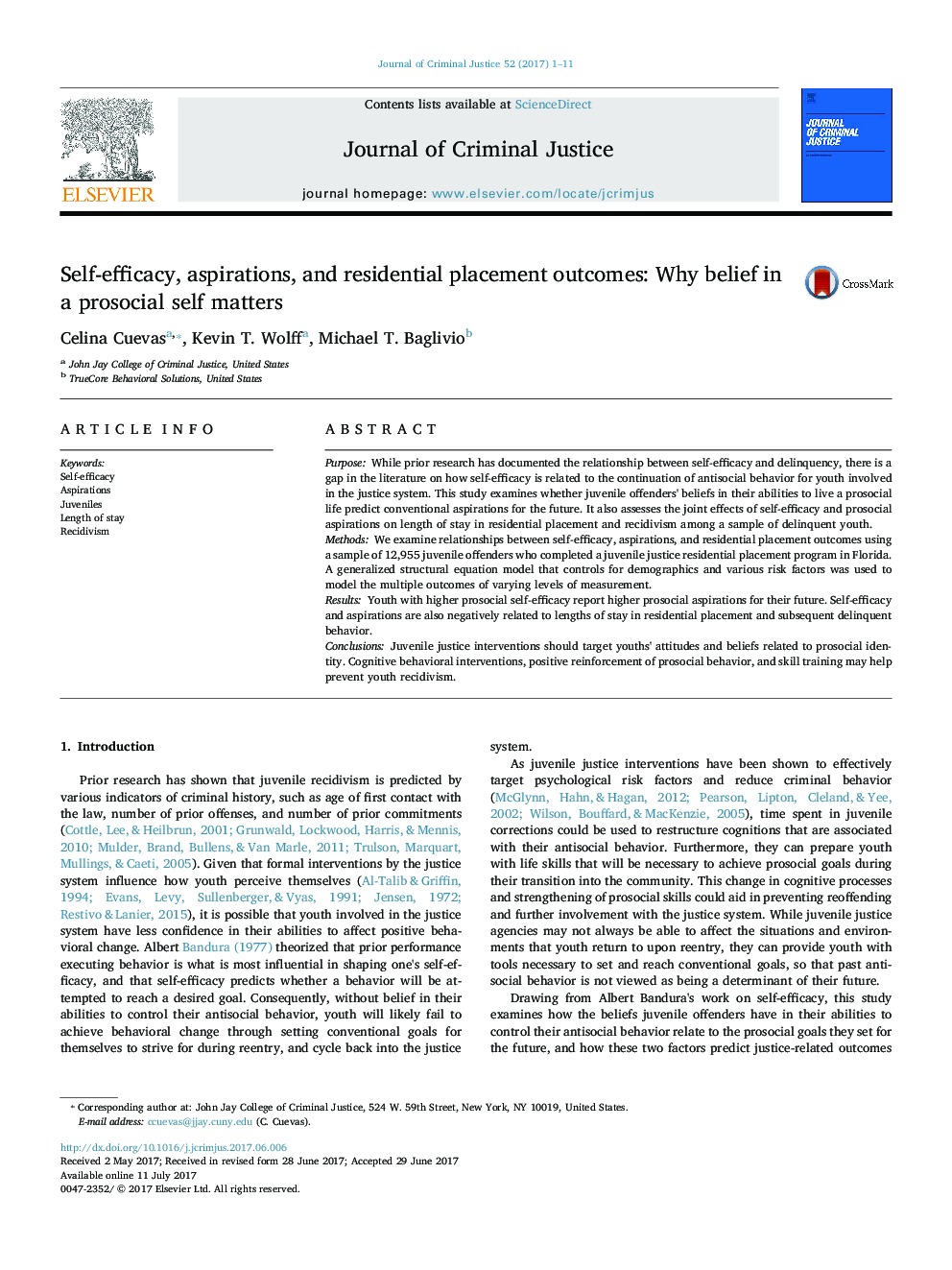| کد مقاله | کد نشریه | سال انتشار | مقاله انگلیسی | نسخه تمام متن |
|---|---|---|---|---|
| 5034330 | 1471581 | 2017 | 11 صفحه PDF | دانلود رایگان |
- Prosocial self-efficacy is positively related to prosocial aspirations for the future.
- Prosocial self-efficacy and prosocial aspirations are related to shorter lengths of stay and lower odds of recidivism.
- Cognitive behavioral therapy, positive reinforcement of prosocial behavior, and skill training may help reduce subsequent offending.
PurposeWhile prior research has documented the relationship between self-efficacy and delinquency, there is a gap in the literature on how self-efficacy is related to the continuation of antisocial behavior for youth involved in the justice system. This study examines whether juvenile offenders' beliefs in their abilities to live a prosocial life predict conventional aspirations for the future. It also assesses the joint effects of self-efficacy and prosocial aspirations on length of stay in residential placement and recidivism among a sample of delinquent youth.MethodsWe examine relationships between self-efficacy, aspirations, and residential placement outcomes using a sample of 12,955 juvenile offenders who completed a juvenile justice residential placement program in Florida. A generalized structural equation model that controls for demographics and various risk factors was used to model the multiple outcomes of varying levels of measurement.ResultsYouth with higher prosocial self-efficacy report higher prosocial aspirations for their future. Self-efficacy and aspirations are also negatively related to lengths of stay in residential placement and subsequent delinquent behavior.ConclusionsJuvenile justice interventions should target youths' attitudes and beliefs related to prosocial identity. Cognitive behavioral interventions, positive reinforcement of prosocial behavior, and skill training may help prevent youth recidivism.
Journal: Journal of Criminal Justice - Volume 52, September 2017, Pages 1-11
